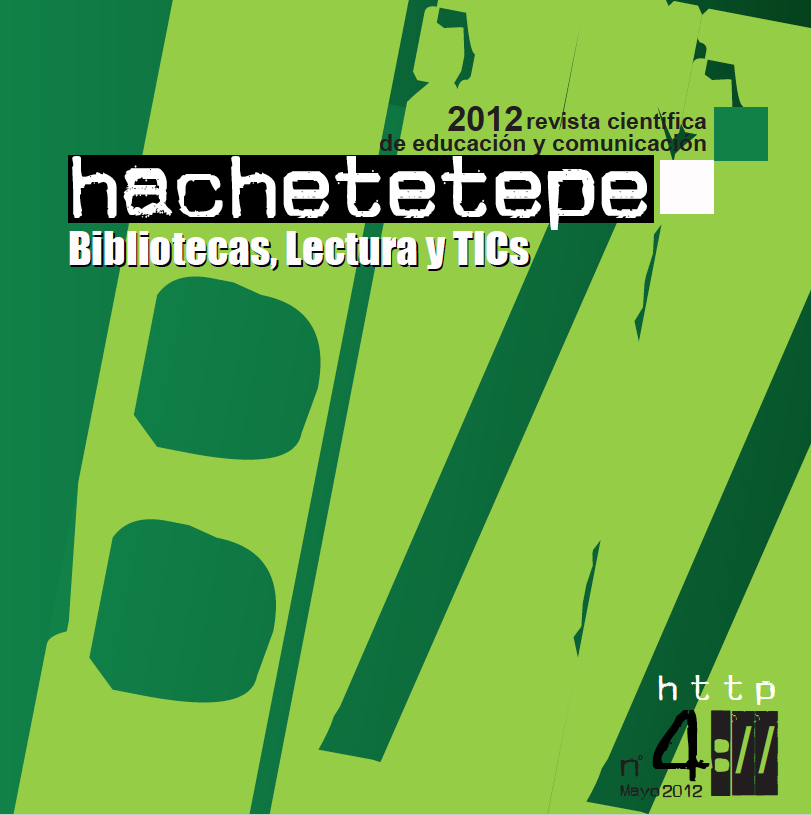Dialogic learning experiences in the University: Reading and libraries tutored

Info
Abstract
From the scientific basis of the dialogic learning model, the development of different methodologies is proposed; more precisely, we report our two-year experience in which students need to read before starting to work on a topic of their curriculum, such reading being the starting point of the presentation for each topic. Besides, tutored libraries, understood as workspaces shared by students and following a peer tutoring methodology, are discussed.
Keywords
Downloads
How to Cite
License

This work is licensed under a Creative Commons Attribution-NonCommercial-NoDerivatives 4.0 International License.
Those authors who have published with this journal, accept the following terms:
- They will retain their copyright and guarantee the journal the right to first publication of their work, which will simultaneously be subject to the Creative Commons Attribution License . They may be copied, used, disseminated, transmitted and publicly displayed, provided that the authorship, url, and magazine are cited, and are not used for commercial purposes. No derivative works are allowed.
- They may adopt other non-exclusive license agreements for the distribution of the published version of the work (e.g., deposit it in an institutional telematic archive or publish it in a monographic volume) provided that the initial publication in this journal is indicated.
- Disseminate your work through the Internet (e.g., in institutional telematic archives or on your website) once the manuscript is accepted, which may lead to interesting exchanges and increased citations of the published work. (See The effect of open access).
Hachetetepé. Scientific journal of education and communication does not charge a fee for the submission of manuscripts or for the publication of its articles.
References
Aubert, A.; Flecha, A.; García, C.; Flecha, R; y Racionero, S. (2008). Aprendizaje dialógico en la Sociedad de la Información. Barcelona: Hipatia.
Bakhtin, M. (1981). The dialogic imagination: Four essays. Austin: University of Texas Press.
Fielding, M. (2004). “Students as Radical Agents of Change”. Journal of Educational Change 2(2), 123-141.
FREIRE, P. (1970). Pedagogía del Oprimido. Madrid: Siglo: XXI.
Freire, P. (2009). A la sombra de este árbol. Esplugues de Llobregat: El Roure Editorial.
Habermas, J. (1987). Teoría de la acción comunicativa. Tomos I y II Madrid: Taurus.
Koschmann, T. (1999). “Toward a dialogic theory of learning: Bakhtin's contribution to understanding learning in settings of collaboration”. International Society of the Learning Sciences, 38.
Orden de 15 de febrero de 2003 del Departamento de Educación y Ciencia, por el que se autoriza la puesta en marcha del proyecto de innovación singular denominado Comunidades de Aprendizaje en diversos centros de la Comunidad Autónoma de Aragón.
Sen, A. (2007). India contemporánea: Entre la modernidad y la tradición. Barcelona: Gedisa.
Servicio de Orientación de la Universidad de Deusto. (2011). Plan de Acción Tutorial de la Universidad de Deusto.
Conceptualización organización y recursos específicos. (Documento interno).
Soler, M. (2004). Reading to share: Accounting for others in dialogic literary gatherings. Aspects of the Dialogic
Self (pp. 157- 183). Berlin: Lehmans.
Topping, K.; Ehly, S. (1998): Peer-Assisted Learning. Mahwah. New Jersey. Lawrence Erlbaum Associates.
Valls, R.; Soler, M. y Flecha, R. (2008). “Lectura dialógica: interacciones que mejoran y aceleran la lectura”, Revista Iberoamericana de Educación, 46.
Villa, A. y Poblete, M. (Directores). (2008). Aprendizaje basado en competencias. Una propuesta para la evaluación de las competencias genéricas. Bilbao: Mensajero.


